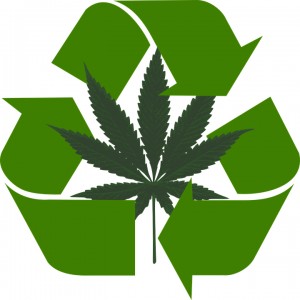 Our environment is under attack from all angles, so each one of us must be conscious of and responsible about the products, businesses and business practices we support, and aware of the environmental impact of the things we perpetuate with our purchases. When we opt to utilize cannabis products to treat ailments instead of synthetic chemical-based solutions, we are already contributing by helping to keep those toxic chemicals and drugs out of our water sources. And the cannabis industry as a whole is forecast to provide some solutions to many of our environmental predicaments.
Our environment is under attack from all angles, so each one of us must be conscious of and responsible about the products, businesses and business practices we support, and aware of the environmental impact of the things we perpetuate with our purchases. When we opt to utilize cannabis products to treat ailments instead of synthetic chemical-based solutions, we are already contributing by helping to keep those toxic chemicals and drugs out of our water sources. And the cannabis industry as a whole is forecast to provide some solutions to many of our environmental predicaments.
Cannabis dispensaries are in a sticky situation when it comes to the recycling and disposal of used packaging material. Current law says that any packaging that has come in contact with usable cannabis is considered contaminated and must be discarded as non-recyclable waste. And recycling non-contaminated material is not among the numerous packaging rules and regulations with which dispensaries are legally obligated to comply. A dispensary with a green initiative is going above and beyond in order to minimize their impact on our environment. Next time you stop into your local dispensary, ask the budtenders if the company is doing anything to address this industry-wide issue. Consumers have the power to influence industries when we decide how to spend our money, and supporting companies that operate according to our values is one of the most powerful and effective actions we can take to inspire change.
Cannabis dispensaries, cultivators and caregivers (as well as home growers) also can put sustainable initiatives in place in their cultivation facilities and practices. Using their water as efficiently as possible, utilizing integrated pest management (IMP) in lieu of pesticides, and implementing energy-efficient lighting are just a few ways growing operations can reduce their carbon emissions.
The recent federal legalization of hemp (Cannabis sativa) is wonderful news for our environment. Hemp is hardy in a multitude of climates, it’s a fast-growing rotation crop, it detoxifies soil and is resistant to both pests and weed growth, and the applications and benefits of industrial hemp are seemingly endless. Hemp plastics and papers are just two of the many hemp-based materials being tested and applied to replace current petrochemical plastics and paper made with trees. These alternative materials are toxin-free, easily renewable and biodegradable. Hemp fiber can be used to make clothing that is softer and more durable than cotton, and if that wasn’t enough, hemp clothes are fire resistant, too! Building and construction materials that are fire resistant, light-weight and have a significantly lower environmental impact than materials like concrete and steel also are being made from hemp. Moreover, hemp is a leading consideration to be a source of clean, renewable energy!
The ecological benefits of both Cannabis sativa and Cannabis indica are plentiful and promising for the future of our environment. As these two closely related yet very different industries develop, consumer influence will be a determining factor in how both industries will help improve the state of our precious planet.


